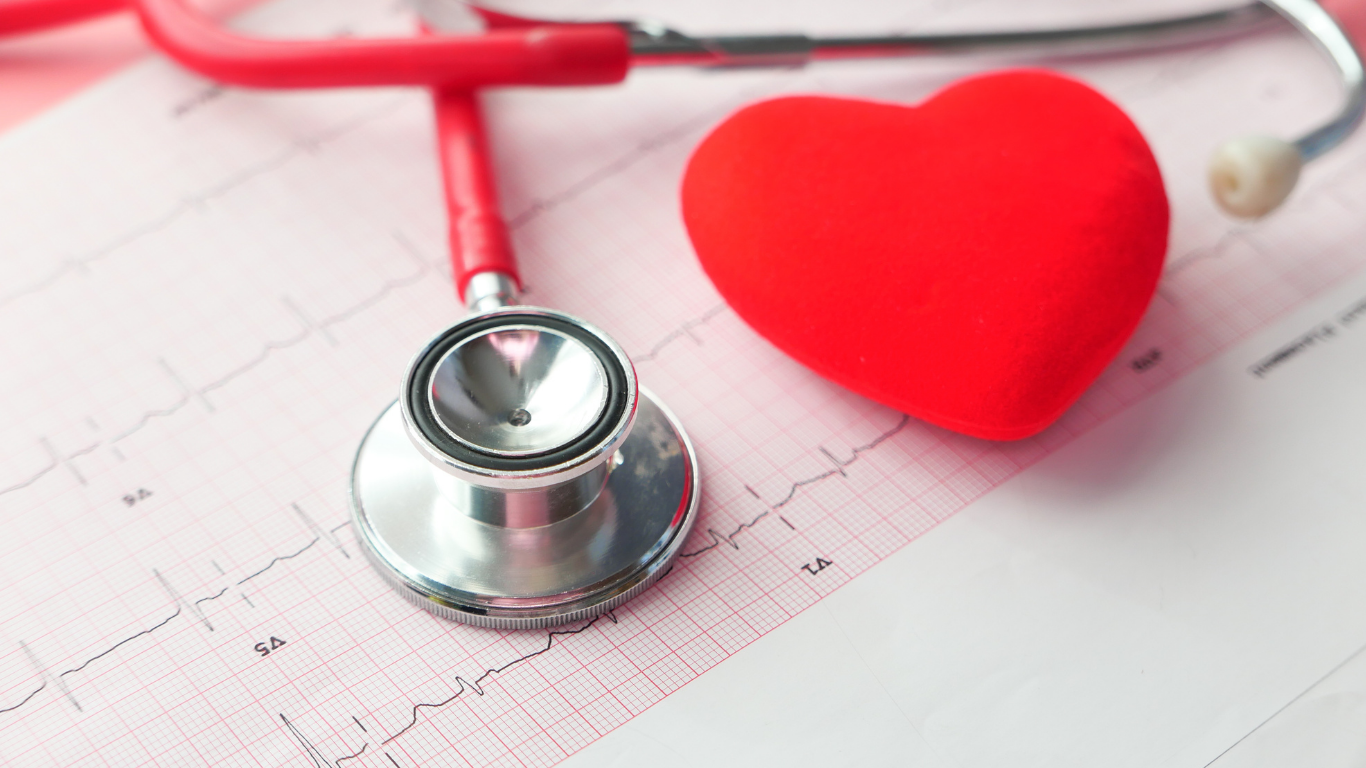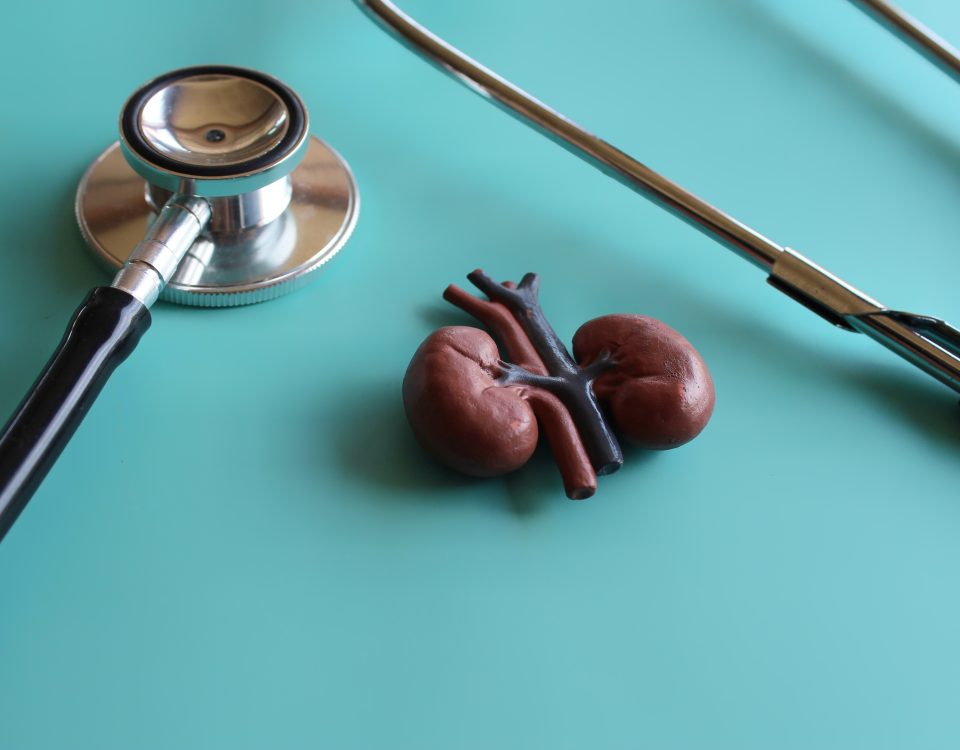Heart Disease Treatment and Prevention in Singapore
by: Dr. Paul Chang, General Practitioner, Regis Medical
Last updated: November 29, 2025
Heart disease, sometimes referred to as cardiovascular disease, is the leading cause of death globally, accounting for 32% of global deaths.
Heart Disease in Singapore
Heart disease trends in Singapore are similar to the global trend, as it is the second leading cause of death after cancer, accounting for 32% of all deaths in 2021. Coupled with the rise in the prevalence of chronic health conditions related to heart diseases, such as high cholesterol, hypertension, and diabetes, it is likely that the number of heart disease-related deaths will continue to increase in Singapore.
Many Singaporeans have a sedentary lifestyle where most of their time is spent seated down, be it at work or home. This sedentary lifestyle together with a lack of exercise can lead to obesity, which brings about many health risks and possible complications. Not to mention, this has been largely exacerbated by the recent Covid-19 pandemic which has essentially increased the time spent at home by Singaporeans. These factors may contribute to the development of heart disease.

Screen for Heart Disease with Regis Medical Health Screening
Comprehensive, fast result, personalised review session
What is Heart Disease?
Heart disease is a general term used to refer to different types of heart conditions, but mainly refers to coronary artery disease, which can result in a heart attack, a life-threatening medical emergency. Heart disease can happen to anyone, being the leading cause of death in multiple different populations. Heart disease is a life-threatening disease that can be prevented if healthy lifestyles are adopted early.
Types of Heart Diseases
Coronary Artery Heart Disease
Coronary artery disease is the most common type of heart disease. This disease causes blockages in the coronary arteries that supply blood to your heart. Plaque that is built up within the coronary arteries may be a combination of cholesterol, calcium, fats and other substances. This is sometimes referred to as “clogged arteries”. As a result of the blockage, the heart is unable to get sufficient oxygen due to reduced blood flow, leading to chest pains, shortness of breath and a potential heart attack. If left untreated, the disease can cause the heart to weaken over time, potentially resulting in heart failure.
Heart Arrhythmias
Heart arrhythmia refers to a heart disorder which results in irregular heartbeats. Arrhythmia can cause the heart to beat:
- Too fast (tachycardia)
- Too slow (bradycardia)
- Too early (premature contraction)
- Too erratically (fibrillation)
Arrhythmia can often be harmless but can be dangerous if it interferes with blood flow to your body, leading to organ damage which can be potentially life-threatening. The most common example would be Atrial Fibrillation causing blood clots that can cause ischemic strokes in the brain.
Congenital Heart Defects
These defects develop during the fetus’ growing phase and are usually undiagnosed. These conditions affect the development of the baby’s heart, including its structure and the way it works. These defects can range from mild to severe, with critical congenital heart defects requiring surgeries or other procedures within the baby’s first year of life. Depending on the severity of the defects and heart condition, people with congenital heart defects may require additional procedures in adulthood, or experience health complications.
Cardiomyopathy
Cardiomyopathy causes the heart muscle to grow weak. It may be stretched, thickened or stiff. The muscle becomes too weak to pump blood normally, reducing blood flow and oxygen throughout the body. This can cause abnormal heart rhythm and even heart failure.
Heart Valve Disease
The human heart has four valves and heart valve disease occurs when one or more valves do not work properly. The valves ensure that blood flows inside the heart correctly, and the disease can cause a disruption of blood flow in the heart. This disease may require surgery to repair or replace the malfunctioning valve.
Symptoms of Heart Disease
The symptoms of heart disease may differ according to the type of heart disease.
Symptoms of Coronary Artery Disease
The symptoms of coronary artery disease may differ slightly between males and females. Males tend to experience chest pain, while females may experience other common symptoms such as shortness of breath, nausea, or extreme fatigue. The common symptoms of coronary artery disease include:
- Chest pains, tightness, or discomfort
- Shortness of breath
- Pain, numbness, weakness or coldness in the limbs
- Pain in the neck, jaw, throat, upper abdomen or back
Symptoms of Heart Arrhythmnias
Symptoms of Heart Arrhythmia include:
- Racing heartbeat
- Slow heartbeat
- Chest pains or discomfort
- Shortness of breath
- Lightheadedness
- Dizziness
- Fainting
- Fluttering in the chest
Symptoms of Heart Defects
Congenital heart defects may sometimes be severe and can lead to other heart problems if left untreated.
Symptoms of congenital heart defects in children include:
- Pale grey or blue skin colour
- Swelling in the limbs, abdomen or around the eyes
- Shortness of breath during feedings
Symptoms of congenital heart defects in childhood or adulthood include:
- Easily experiencing shortness of breath during exercise/activity
- Easily fatigued during exercise/activity
- Swelling in the hands, feet or ankles
Symptoms of Cardiomyopathy
Cardiomyopathy often has no symptoms until later stages in which the condition has worsened. These symptoms include:
- Shortness of breath during exercise or while resting
- Swelling of the legs, ankles or feet
- Fatigue
- Irregular heartbeats
- Dizziness, lightheadedness and fainting
Symptoms of Heart Valve Disease
Symptoms of heart valve disease may depend on the malfunctioning valve, but includes:
- Fatigue
- Breathlessness
- Irregular heartbeat
- Swollen feet or ankles
- Chest pain
- Fainting
In general, common symptoms of heart diseases include:
- Chest pains
- Shortness of breath
- Fainting
These symptoms may sometimes be caused by other health problems, but it is important to seek a doctor's opinion if you experience such symptoms to ensure early detection of cardiovascular disease.
Heart Disease Risk Factors
Risk factors of heart disease include:
- Age: As you age, the risk of your arteries narrowing and being damaged increases, as well as the weakening and thickening of the heart muscle.
- Sex: Men are generally more prone to developing heart disease. For women, their risk of developing heart diseases increases after menopause.
- Family History: If you have a family member, especially a parent, with heart disease, you are at an increased risk of developing coronary artery disease.
- Smoking: Smoking has been proven to narrow blood vessels due to nicotine. The carbon monoxide inhaled can also damage your blood vessels. Studies have shown that smokers are approximately 2 to 4 times more likely to develop coronary heart disease in comparison to non-smokers.
- Poor diet: Having a poor diet that is high in sodium, sugar and cholesterol can lead to the development of diabetes, hypertension and high blood pressure, which can lead to the development of heart diseases when left uncontrolled.
- High blood pressure: High blood pressure, if left unmanaged, can cause your arteries to harden and thicken, narrowing your blood vessels. This can affect blood flow, causing heart diseases.
- Diabetes: Heart disease can be a complication of diabetes. The two also share common risk factors, such as obesity and high blood pressure.
- High blood cholesterol levels: High blood cholesterol levels can cause plaque to build up in your blood vessels, leading to heart diseases such as atherosclerosis.
- Obesity: Obesity has been linked to the development of various cardiovascular diseases, as well as related health conditions such as diabetes, high cholesterol and hypertension.
- Physical inactivity: Similar to obesity, the lack of physical exercise can lead to the development of various cardiovascular diseases, as well as related health conditions such as diabetes, high cholesterol and hypertension.
- Stress: High levels of stress over a long period of time can cause spikes in blood pressure which can damage blood vessels, increasing your risk of developing heart diseases.
Complications of Heart Disease
Heart diseases can lead to serious health complications that are often life-threatening. These include:
- Heart failure: Heart failure is a common complication of heart disease, occurring when your heart is unable to pump sufficient blood throughout your body. The heart becomes too weak or stiff. While heart failure does not mean that your heart has stopped working, it will require additional assistance to continue functioning. This can come in the form of surgical procedures or implanted devices. Heart failure tends to worsen over time and can lead to death if left untreated.
- Heart attack (Acute Myocardial Infarction): Blood clots in your blood vessels block blood from flowing to your heart, causing a heart attack that can damage or destroy parts of the heart muscle. A heart attack can be considered a medical emergency and should demand immediate medical attention. The sooner you are treated, the less damage is done to your heart muscle. In certain cases, cardiopulmonary resuscitation (CPR) or an electric shock using a defibrillator may be necessary.
- Stroke: Cardiovascular diseases increase your risk of having an ischemic stroke, where blood flow to your brain is blocked due to blood clots in the supplying blood vessels. A stroke is a medical emergency which requires immediate medical attention. A stroke can cause brain damage that is irreversible, potentially resulting in death or further health complications such as permanent disability.
- Peripheral artery disease: Peripheral artery disease causes your limbs, usually your legs, to not receive sufficient blood flow. This can cause you to feel pain when walking.
- Sudden cardiac arrest: Sudden cardiac arrest is a sudden loss of heart function, breathing and consciousness. This happens without warning, often due to a sudden malfunction in the heart that causes an irregular heartbeat. This disrupts the pumping action of the heart, causing it to be unable to pump blood to your vital organs, especially the brain and the lungs. This causes the patient to lose consciousness and their pulse. If left untreated, it may lead to death within minutes. There are some conditions that predispose to this, such as Brugada Syndrome and Long QT Syndrome.
Screening for Heart Disease
For heart screening and tests, there are many types of tests. A physical examination alongside a review of your medical history will help your doctor recommend tests that are suitable for you.
These tests include:
- Blood tests: Your blood is tested for substances such as creatinine, kinase and troponin that are released into the bloodstream during a heart attack. These tests will allow your doctor to confirm a heart attack, estimate the time of an attack and detect damage to the heart muscle.
- Chest X-ray: An X-ray of the chest can show the size and shape of your heart, blood vessels and lungs.
- Electrocardiogram (ECG): An ECG provides information of your heart rhythm, heart rate, electrical abnormalities, and thickening of the heart muscle. It can also reveal previous or ongoing heart attacks as well as poor blood supply to the heart.
- Holter Monitoring: This test requires the patient to wear an ambulatory ECG for 24 to 48 hours. This allows abnormal heart rhythms or abnormalities to be recorded over a prolonged period.
- Treadmill ECG (TMX ECG): This test requires you to run on a treadmill while wearing the ECG electrodes. Speed and elevation gradually increase during the test and will continue until you reach your target exercise heart rate or are unable to continue or experience chest pains.
- Echocardiography: Echocardiography is an ultrasound of the heart that creates a detailed imaging of the heart. This allows for heart conditions to be spotted via assessing the internal structure, movement, chambers, and valves of your heart.
- Computed Tomography (CT) scan: A CT scan creates detailed images of the body, including the heart and surrounding blood vessels. This helps to screen for cardiac tumors, aortic disease, and pericardial disease
- CT Coronary Angiogram: This type of CT scan includes the use of a dye injection. This test helps to screen for narrowed or blocked arteries in the heart and other heart diseases.
- Magnetic Resonance Imaging (MRI): An MRI helps to create detailed three-dimensional images of your internal organs with the use of a magnetic field. This allows damage to your organs, artery diseases, or cardiovascular defects to be detected.
- Cardiac Nuclear Imaging: This test makes use of a very small amount of radioactive material (tracers) combined with the use of a gamma camera to create detailed images of the blood flow through your cardiovascular system. This can sometimes be combined with an exercise stress test.
Preventing Heart Disease
Heart diseases tend to be very dangerous and often life-threatening. With advancements in medical technology, they can be carefully managed by regular medication and checkups. Despite this, it is still ideal to prevent heart diseases from developing in the first place, especially if you are at a higher risk of developing heart disease. Here are some of the steps you can take to lower your risks of developing heart disease:
Maintaining a healthy weight
Being overweight or obese will significantly increase your risk of developing heart diseases. A healthy body mass index (BMI) range to keep within is 18.5 to 24.9. Lifestyle changes can be adopted to lose weight, including a change in diet and staying physically active.
Healthy Diet
An unhealthy diet can contribute to the development of heart diseases and other related illnesses. A healthy diet not only helps to protect your heart, but also keeps your blood sugar, blood cholesterol, and blood pressure in check.
A healthy diet should aim to include a wide range of foods such as:
- Vegetables and fruits
- Beans
- Lean meat
- Fish
- Low-fat or fat-free dairy foods
- Whole grains
- Healthy fats
On the other hand, foods that are bad for your health should be avoided or kept to a minimum as much as possible. These include:
- Processed foods
- Foods high in sodium content
- Foods high in sugar content
- Sugary drinks
- Processed carbohydrates
- Alcohol
- Foods high in saturated fats
- Foods high in trans fats
By keeping to a healthy diet, you can ensure that your body gets sufficient nutrients without putting you at greater risk of heart disease.
Staying physically active
Regularly exercising can help keep your body fit as well as lower blood pressure and improve cardiovascular health. Physical exercise can also help you shed some excess weight if needed. It is recommended for adults to engage in moderate to intense aerobic exercises for at least 2 hours and 30 minutes a week, which averages to about 30 minutes a day. Simple exercises such as brisk walking can make a big difference in your journey towards preventing heart diseases.
Quit smoking
Smoking is damaging to your cardiovascular health and puts you at a heightened risk for many health complications. Studies have shown positive results in lowering the risk of developing heart diseases just by quitting smoking. For example, within a year of quitting, the risk of heart attack drops dramatically.
Improve your sleep
A lack of sleep, as well as sleep quality, can contribute to greater risks of developing heart diseases. It is recommended that you have at least 7 hours of sleep every night. Keeping a regular sleep schedule can help improve sleep quality. If you have sleep disorders that are affecting your sleep quantity and/or sleep quality, you may want to seek a doctor’s advice.
Regular health screenings
Many chronic conditions can lead to heart diseases. High blood pressure and high cholesterol can damage the cardiovascular system, increasing the risk of heart diseases. However, because these conditions do not usually show any symptoms until later stages, many patients remain undiagnosed. Diabetes is a similar common chronic condition that can lead to heart disease. By having regular health screening for such conditions, you can ensure early detection as well as put yourself at ease knowing that you are healthy.
Managing stress healthily
Stress can increase your risk of heart diseases. It is good to relieve stress, but some people choose to deal with stress in unhealthy ways. For example, overeating, excessive drinking, smoking or even substance abuse. All these methods are destructive to your health. Choose alternative ways of managing stress such as exercising or relaxation exercises like yoga, that can be both effective in relieving stress and keeping your body healthy.
Heart Disease Treatment
Treatment for heart disease depends on the type of heart disease you have. Lifestyle changes are usually required. Do seek your doctor’s advice on what specific lifestyle changes you should make. Medication and surgical procedures may be required depending on the type of heart disease and the severity of the disease.

The financial aspects of treating heart disease in Singapore
Heart diseases contribute to approximately one in three deaths in Singapore and have been reported to cost US$8.1 billion in direct and indirect costs on individuals, their households and the public finances. Heart disease requires careful management, with regular checkups and medication and even requiring surgical procedures that often require hospitalisation, which can be very costly. The complexity of heart surgeries also means that they cost more.
For example, the median hospitalisation bill for coronary artery bypass, a common procedure for patients with coronary artery disease, ranged from S$8,312 for B2 wards in a public hospital, to S$34,204 for unsubsidised B1 wards.
For those who prefer private hospitals, the estimated bill would be around S$81,338. Sudden health emergencies such as cardiac arrest might also require the assistance of an ambulance and admission into A&E. Ambulance fees in Singapore can range from S$90 to S$300, with the A&E fees for public hospitals costing around S$120. Certain health complications may even affect your ability to work, incurring further costs.
Medication
There are many types of drugs suitable for treating heart disease, but the specific drug prescribed will depend on your condition. Commonly used drugs for treating heart disease include:
- Anticoagulants, or blood thinners reduce the chances of blood clots forming in the blood vessels and heart, as well as preventing existing clots from becoming larger in size.
- Angiotensin-converting enzyme (ACE) inhibitors prevent your body from producing a substance that increases blood pressure and narrows your blood vessels. This allows your blood to flow normally.
- Beta-blockers help to lower blood pressure by blocking the effects of adrenaline on the heart, making your heart pump slower and with less force.
- Calcium channel blockers help to lower blood pressure by relaxing your blood vessels. The drug reduces the effect of calcium on your cardiovascular system, effectively slowing heart rate, reducing the stress put on your heart.
- Diuretics, sometimes known as water pills, remove excess fluids and sodium from the body via urination. This decreases the heart’s workload.
- Statins help to lower your blood cholesterol, decreasing levels of low-density lipoprotein cholesterol that can cause the accumulation of plaque in your blood vessels.
Heart Surgery
Surgery may be recommended in order to keep your symptoms under control or lower the risk of future heart failure, in order to prolong the life of the patient. Heart surgeries may sometimes be part of an emergency treatment.
Common heart surgical procedures include:
- Coronary artery bypass grafting - also known as a heart bypass, is the most common type of heart surgery. A healthy artery or vein from somewhere else in your body is used to connect to blood supply past the coronary artery that is blocked. This allows your blood flow to bypass the blocked artery towards the heart.
- Heart valve repair or replacement - Faulty valves can sometimes be repaired, but for those that cannot be repaired, they have to be replaced with either artificial valves or valves made from pigs or cows. This may not be suitable for everyone.
- Heart transplant - The diseased heart is removed and replaced with healthy human heart that is donated. The heart will have to be suitable for the patient before the surgery can be carried out. This is done rarely, and the patient will require lifelong immunosuppressant medication to prevent organ rejection.
- Insertion of a pacemaker or an implantable cardioverter defibrillator (ICD) - For arrhythmia, where the heart beats irregularly, a pacemaker may be implanted. The pacemaker uses electrical pulses to ensure that the heart beats normally. An ICD works in a similar manner but uses an electric shock instead.
- Maze surgery - Maze surgery helps to correct irregular heartbeats by making multiple incisions in the upper chambers of the heart that stops electrical impulses from causing abnormal heart rhythm.
Other types of surgeries may be recommended by a specialist depending on the severity and type of heart condition you have.
Screen for Heart Disease with Regis Medical Health Screening
Comprehensive, fast result, personalised review session
Disclaimer:
The information on this website, including but not limited to, text, graphics, images, videos and all other materials contained on this website is for informational purposes only. None of the material is meant to replace a certified and registered Doctor's professional medical advice, diagnosis, and treatment.
No warranties or representations are given in respect of the medical information. Regis Medical, Regis Medical’s staff, and the website's operator will not be held liable if a user suffers any injury or loss after relying upon the medical information on this website.
Any devices used for technology-enhanced therapies are intended for use only for general well-being purposes or to encourage or maintain a healthy lifestyle and is not intended to be used for any medical purpose (such as the detection. diagnosis, monitoring, management or treatment of any medical condition or disease). Any health-related information provided by this device or software should not be treated as medical advice. Please consult a certified and registered Doctor for any medical advice required.
Amin, Amrin. “News Highlights.” Ministry of Health, Ministry of Health, 29 Sept. 2019, https://www.moh.gov.sg/news-highlights/details/speech-by-mr-amrin-amin-senior-parliamentary-secretary-ministry-of-home-affairs-ministry-of-health-at-the-launch-of-national-heart-week-world-heart-day-2019-29-september-2019-at-kampung-admiralty.
“Arteriosclerosis / Atherosclerosis.” Mayo Clinic, Mayo Foundation for Medical Education and Research, 1 July 2022, https://www.mayoclinic.org/diseases-conditions/arteriosclerosis-atherosclerosis/symptoms-causes/syc-20350569.
Beckerman, James. “Heart Disease and Cardiomyopathy.” Enlarged Heart (Cardiomyopathy) Symptoms, Causes, Treatments, WebMD, 4 June 2022, https://www.webmd.com/heart-disease/guide/muscle-cardiomyopathy.
Beckerman, James. “Heart Disease: Types, Causes, and Symptoms”, WebMD, WebMD. 14 June 2021, https://www.webmd.com/heart-disease/heart-disease-types-causes-symptoms.
“Coronary Artery Disease.” Mayo Clinic, Mayo Foundation for Medical Education and Research, 25 May 2022, https://www.mayoclinic.org/diseases-conditions/coronary-artery-disease/symptoms-causes/syc-20350613#:~:text=Coronary%20artery%20disease%2C%20also%20called,are%20almost%20always%20to%20blame.
“Diagnosis and Treatment.” Singapore Heart Foundation, Singapore Heart Foundation, https://www.myheart.org.sg/health/diagnosis-and-treatment/.
“Emergency Ambulance Services (EAS) Common Fees.” Ministry of Health, Ministry of Health, 20 June 2021, https://www.moh.gov.sg/licensing-and-regulation/accredited-private-ambulance-operators/eas-common-fees.
“Everything You Need to Know About Heart Disease.” Heart Disease: Risk Factors, Prevention, and More, Healthline Media, 30 Mar. 2018, https://www.healthline.com/health/heart-disease#symptoms-of-heart-disease.
“Everything You Want to Know about Arrhythmia.” Arrhythmia, Healthline Media, 28 Mar. 2022, https://www.healthline.com/health/arrhythmia#types.
“Acupuncture Alleviates Coronary Artery Disease.” HealthCMi, Healthcare Medicine Institute, 22 Mar. 2019, https://www.healthcmi.com/Acupuncture-Continuing-Education-News/1944-acupuncture-alleviates-coronary-artery-disease.
“Health Effects of Cigarette Smoking.” Smoking & Tobacco Use, Centers for Disease Control and Prevention, 29 Oct. 2021, https://www.cdc.gov/tobacco/data_statistics/fact_sheets/health_effects/effects_cig_smoking/index.htm#:~:text=Top%20of%20Page-,Smoking%20and%20Increased%20Health%20Risks,%2C%20stroke%2C%20and%20lung%20cancer.&text=Estimates%20show%20smoking%20increases%20the,by%202%20to%204%20times&text=For%20stroke%20by%202%20to%204%20times.
“Heart Disease Statistics.” Singapore Heart Foundation, Singapore Heart Foundation, https://www.myheart.org.sg/health/heart-disease-statistics/#:~:text=In%20Singapore%2C%2021%20people%20die,to%20heart%20diseases%20or%20stroke.
“Heart Disease.” Mayo Clinic, Mayo Foundation for Medical Education and Research, 9 Feb. 2021, https://www.mayoclinic.org/diseases-conditions/heart-disease/diagnosis-treatment/drc-20353124#:~:text=In%20general%2C%20treatment%20for%20heart,Medications.
“Heart Disease.” Mayo Clinic, Mayo Foundation for Medical Education and Research, 9 Feb. 2021, https://www.mayoclinic.org/diseases-conditions/heart-disease/symptoms-causes/syc-20353118.
“Heart Failure.” NHS Choices, NHS, 19 May 2022, https://www.nhs.uk/conditions/heart-failure/#:~:text=Heart%20failure%20means%20that%20the,your%20heart%20has%20stopped%20working.
“Heart Valve Disease.” Mayo Clinic, Mayo Foundation for Medical Education and Research, 29 Sept. 2021, https://www.mayoclinic.org/diseases-conditions/heart-valve-disease/symptoms-causes/syc-20353727#:~:text=In%20heart%20valve%20disease%2C%20one,your%20body%20to%20be%20disrupted.
Liang, Bo, and Ning Gu. “Traditional Chinese Medicine for Coronary Artery Disease Treatment: Clinical Evidence From Randomized Controlled Trials.” Frontiers in cardiovascular medicine vol. 8 702110. 6 Aug. 2021, doi:10.3389/fcvm.2021.702110
Li Shi, et al. "Comparison of the Therapeutic Effects of Acupuncture at PC6 and ST36 for Chronic Myocardial Ischemia", Evidence-Based Complementary and Alternative Medicine, vol. 2017, Article ID 7358059, 2017. https://doi.org/10.1155/2017/7358059
Meng Khoo, Chin, and E Shyong Tai. “Trends in the incidence and mortality of coronary heart disease in asian pacific region: the Singapore experience.” Journal of atherosclerosis and thrombosis vol. 21 Suppl 1 (2014): S2-8. doi:10.5551/jat.21_sup.1-s2
Ni, Yu-Ming & Frishman, William. “Acupuncture and Cardiovascular Disease: Focus on Heart Failure.” Cardiology in Review. 26. 93-98. (2018). 10.1097/CRD.0000000000000179.
“Principal Causes of Death.” HealthHub, Ministry of Health, 12 Apr. 2022, https://www.healthhub.sg/a-z/health-statistics/4/principal-causes-of-death.
Sanchez-Kumar, Natalia. “24-Hour Clinic or Hospital A&E: A Guide to Costs & Care in Singapore.” ValueChampion, ValueChampion Singapore, 29 Mar. 2022, https://www.valuechampion.sg/24-hour-clinic-or-hospital-ae-guide-costs-care-singapore.
“Strategies to Prevent Heart Disease.” Mayo Clinic, Mayo Foundation for Medical Education and Research, 14 Jan. 2022, https://www.mayoclinic.org/diseases-conditions/heart-disease/in-depth/heart-disease-prevention/art-20046502.
“The Hidden Financial Costs of a Heart Attack.” AXA Singapore, AXA Singapore, 21 Aug. 2020, https://www.axa.com.sg/blog/health/hidden-financial-costs-of-a-heart-attack.
Wang, Yong et al. “A Review of Chinese Herbal Medicine for the Treatment of Chronic Heart Failure.” Current pharmaceutical design vol. 23,34 (2017): 5115-5124. doi:10.2174/1381612823666170925163427
Welch, Ashley. “Treatment and Prevention of Heart Disease”, EverydayHealth, EverydayHealth, 21 May 2018, https://www.everydayhealth.com/heart-disease/treatment-prevention/.
“What Are Congenital Heart Defects?” Congenital Heart Defects (CDHs), Centers for Disease Control and Prevention, 24 Jan. 2022, https://www.cdc.gov/ncbddd/heartdefects/facts.html.


